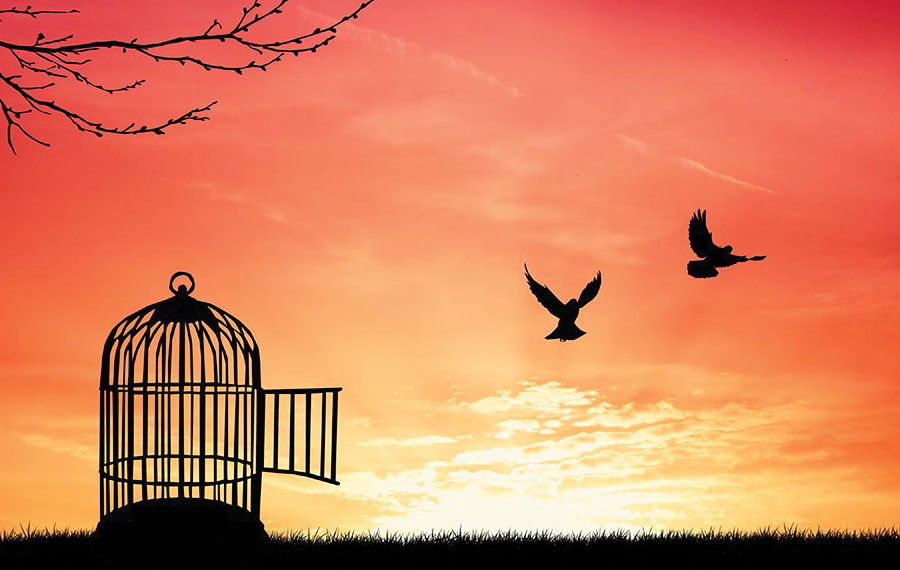
How can anyone not be madly in love with freedom? Freedom is the very opposite of being imprisoned — and what’s worse than that? Freedom is the bliss of knowing that as long as you don’t break the law, you can do pretty much anything you like anytime and anywhere you choose.
The simple act of criticizing my government without the government coming after me is enough to bring me pleasure. Maybe that’s because I come from a North African country where such freedom is hardly the norm.
When I see hundreds of Jews walking to their individual synagogues in my Pico-Robertson neighborhood, I’m aware that for most of Jewish history, this kind of religious freedom was only a dream.
The Passover holiday is the celebration of that dream. We reflect on the slavery endured by our ancestors, rejoice at their liberation and remind ourselves never to take freedom for granted — for us and for the strangers among us.
And yet, in the midst of celebrating this ultimate human value, this year, I find myself thinking about freedom’s dark side.
After all, freedom includes the freedom to be miserable, to wallow in victimhood, to offend and insult, to disrespect and neglect, to gossip, to be narcissistic and arrogant, to be selfish, to be dull and incurious.
We rarely highlight those darker freedoms at the seder table. We prefer more inspirational ones, such as the freedom to repair the world. This freedom is highly popular partly because it makes us feel good about ourselves. We think big, we fight for justice, we help humanity.
Because slavery and freedom are such epic themes, Passover lends itself well to higher aspirations. We were once slaves in Egypt, so it behooves us to always remember the plight of the oppressed and never stand idly by.
But as much as I value the freedom to make the world a better place, I value equally the freedom to become a better human being. Volunteering at a soup kitchen isn’t worth much if I come home and say something hurtful to my kid.
The freedom to become a better human has two layers. The first is the obvious, positive one — the freedom to be a mensch, to be considerate, compassionate, honest, humble, grateful. We hear those good traits often.
It’s the second, negative layer of freedom, the one we usually ignore, that has more bite. This is the freedom to do bad things, to hurt people, to harbor resentment and bitterness. This kind of darkness is more threatening because it’s so personal and intimate. It’s a lot simpler to tackle the impersonal darkness of societal ills like global warming or social injustice.
But it’s the personal that sticks. When we lose our cool with a friend or family member who voted for the “wrong” party; when we can’t tolerate an aging parent who constantly annoys us; when we berate a child who won’t follow our rules; when we become angry at the world because we can’t catch a break, we are using our freedom to darken our souls.
Just as freedom empowers us to do good in the world, it empowers us to do harm in our lives. We have the freedom to repair the world, yes, but also the freedom to repair ourselves. We can do both.
When I’m stuck in nasty L.A. traffic, I am free to dump my frustration on someone else, just as I am free to call my mother in Montreal and bring a little joy to her day. What is it that compels us to make the right choices? Maybe it’s the stark comparison between the path of darkness and the path of light.
A good metaphor to capture this comparison is to look at freedom as the chisel of a master sculptor. The same instrument can create a magnificent piece of art, or it can puncture a human heart. We hold that instrument of freedom in our hands all day long, with the power both to elevate and to harm those around us.
My own personal lesson of the Passover holiday is to fall madly in love with the freedom that enhances my humanity, not the one that darkens it.
So, after we ask the Four Questions at our seder gatherings, maybe we can add this one: Which side of freedom will we commit to this year, and how will we use it?
Happy Passover.























 More news and opinions than at a Shabbat dinner, right in your inbox.
More news and opinions than at a Shabbat dinner, right in your inbox.